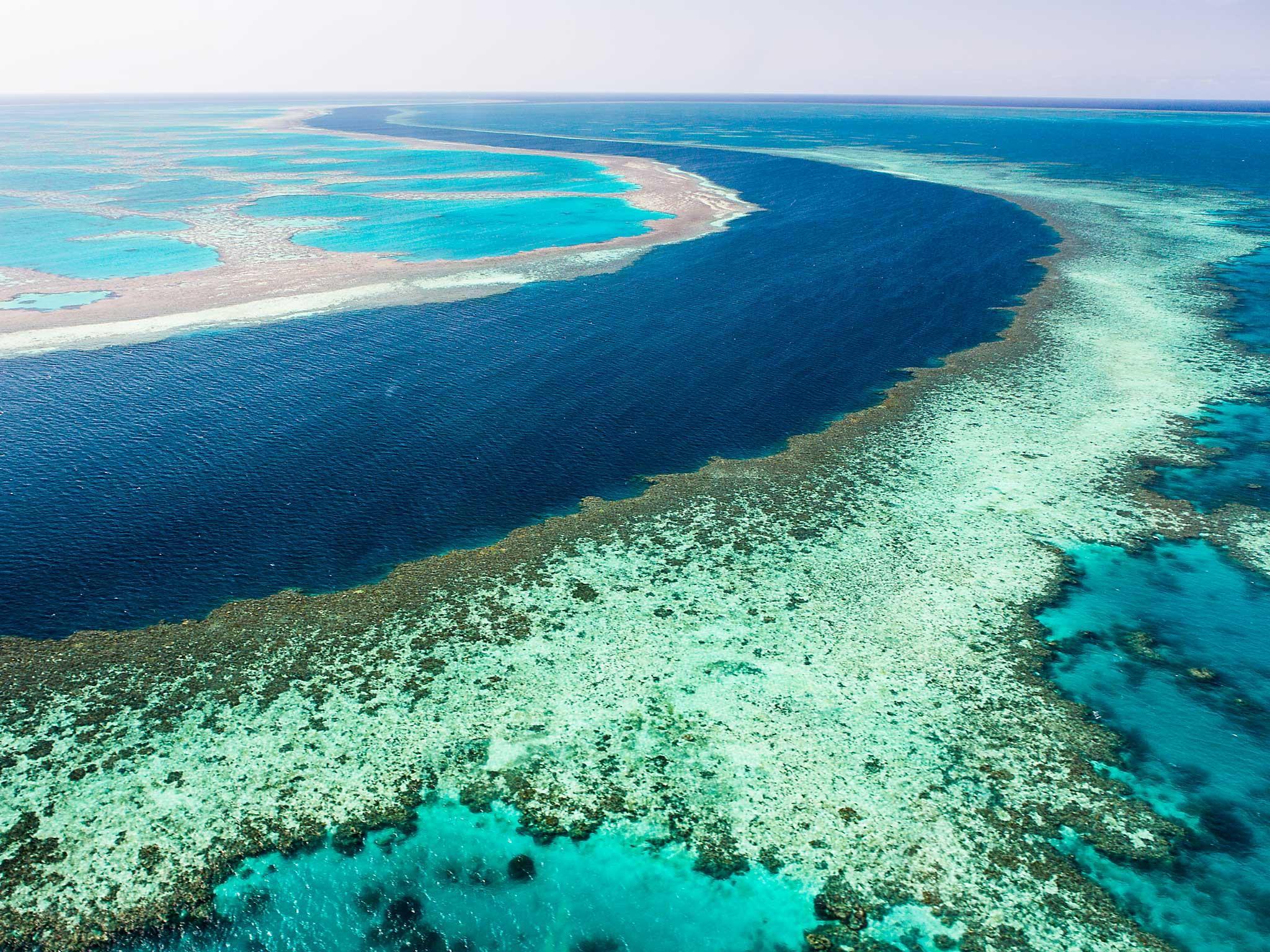Great Barrier Reef life under threat as coral continues to die six months after mass bleaching
'A whole lot of things that are going to change,' says marine biologist Andrew Hoey

The world's largest ecosystem is under threat as corals in the Great Barrier Reef continue to die out six months after a severe underwater heatwave earlier this year, scientists have warned.
Marine biologists surveying the continuing aftermath of the worst coral bleaching ever recorded on the Great barrier reef have said corals are still dying six months on due to coral predators and disease, and that their decline will have a widespread and damaging effect.
Millions of corals bleached in the northern third of the 2,300-kilometre (1,429-mile) long biodiverse site off the Queensland state coast died after an unprecedented bleaching earlier in March as sea temperatures rose.
"Bleaching" occurs when the water warms and leads the coral to expel the algae that lives inside it. The event in March was caused partly by the strong El Nino weather system that has swept across the world in the last year - but the underlying cause was said to be global warming.
Only seven per cent of the reef escaped the bleaching, and scientists warned at the time that half of the Great Barrier Reef was “dead or dying”.
Now scientists from the Coral Reef Studies in Australia who are assessing the reef warn corals are still dying from the impact, with the proportion of live coral falling from 40 per cent in March to just five per cent at present.
Dr Andrew Hoey, of the Australian Research Council Centre of Excellence for Coral Reef Studies at James Cook University, said the continuing death of corals and the growing frequency of bleaching events due to global warming is likely to impact the Great Barrier Reef's entire ecosystem, and in turn affect the fishing industry as well as tourism.
Mr Hoey told The Independent: "It's changing the whole system. Once those corals die they become quickly covered in algae, if the fish don't eat that algae that can turn into a seaweed bed, and once you get to that stage you're really going to struggle to get back.
"The frequency of these bleaching events is getting more and more common, so the outlook's not great. While the reefs might start to recover, they'll likely be hit by another major disturbance. It's inevitable that this is going to happen. Any corals that recover, or new corals that start growing, we'll get another period of elavated seawater temperatures and they'll die as well.
"Unless we prevent the current disturbances happening the reef is going to be changhing dramatically in the composition and what it can support. You lose the corals, you're going to lose a lot of the small fish, then there's nothing for the bigger fish to feed on. It will have an impact on the whole ecosystem, and could put the fishing and tourism industries in danger. There are a whole lot of things that are going to change."
Dr Greg Torda, whose team recently returned from re-surveying reefs near Lizard Island, said: “Millions of corals in the north of the Great Barrier Reef died quickly from heat stress in March and since then, many more have died more slowly.
“Six months after the peak bleaching, the corals now have either regained their algal symbionts and survived, or they have slowly starved to death without the nutrition the algae provided to them. On the reefs we surveyed close to Lizard Island, the amount of live coral covering the reef has fallen from around 40 per cent in March, to under five per cent now."
The bleaching in March marked the third time in 18 years that the World Heritage-listed site, which teems with marine life, has experienced mass bleaching after previous events in 1998 and 2002.
The final death toll from the bleaching in the north will not be known until all surveys are completed in mid-November, but it is already clear that this event was much more severe than the previous two.
Join our commenting forum
Join thought-provoking conversations, follow other Independent readers and see their replies
Comments
Bookmark popover
Removed from bookmarks